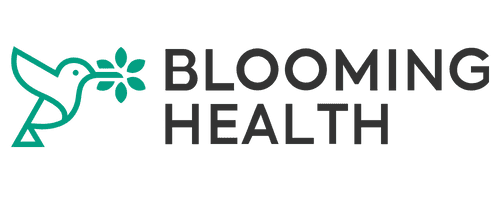Aug 22, 2025
At Blooming Day Ohio 2025, leaders from across healthcare, public policy, and community-based organizations gathered in Cleveland for conversations about what it takes to build stronger, more connected care systems. Hosted by Blooming Health, the event brought together change makers committed to rethinking how care is delivered, especially for the most vulnerable populations.
In the session, Tackling Maternal Health & Infant Mortality, panelists explored the persistent crisis of maternal and infant health inequities, particularly among Black women and babies. The conversation was moderated by Celina Cunanan, Chief Health Impact Officer at University Hospitals. Panelists included:
Angela Newman-White, Executive Director, First Year Cleveland
Tonae Bolton, Sr. Director of Strategy & Engagement, Birthing Beautiful Communities
Mark Yancy, CEO, NashvilleHealth (joining virtually)
Together, they explored the deep systemic drivers of poor maternal outcomes—and how community-based innovation, policy change, and technology can offer paths forward.
Healthcare is not the solution. Poverty is the problem.
Despite being home to nationally ranked healthcare institutions, Cleveland still has one of the highest infant mortality rates in the country. As Angela Newman-White explained, “Cleveland is one of the poorest cities in the nation and poverty is a huge contributing factor to the overall health and well-being of our community, specifically maternal and child health.”
She emphasized the need for a full ecosystem, one that includes prenatal care models like group-centered pregnancy, but also accounts for barriers to access such as transportation, housing, and food insecurity. “Our job at First Year Cleveland is really thinking about how do we create this ecosystem… It's our responsibility to think about the women that are not being engaged and how we meet their needs from an upstream perspective.”
Cultural Competence and the Power of Doulas
Tonae Bolton, who began as a doula herself, spoke to the critical importance of culturally responsive care and relationship-building. “We follow our clients until babies reach their one-year birthday… but you're really developing a relationship. I have clients whose babies are three and they still call for support.”
Her organization, Birthing Beautiful Communities, not only provides free doula and postpartum care, but also addresses broader social determinants. “We provide Ubers to the grocery store. We have a teen program, we don’t just let you go after your baby turns one. If you're a teen parent, we will follow you until you're 27.”
Their work also includes systems-level advocacy: “Before we became involved, if you were pregnant and in prison, you were chained to a bed. Now, moms are no longer chained. They can give birth in a humane and dignified setting.”
Maternal Health Is Not Charity, It's Economic Infrastructure
Joining virtually from Tennessee, Mark Yancy of NashvilleHealth reframed the conversation from one of charity to economic necessity. “What we try and do is make it relevant to decision-makers. When we have postpartum issues that keep a mother from going back to work, her time and talent is not available to everybody else.”
He stressed the need to treat maternal health not as a niche issue but as a societal one. “If we can’t take care of women and children, we can’t take care of anyone.”
NashvilleHealth builds multisector demonstration projects that bring together healthcare, housing, food access, and transit then uses data from these programs to advocate for long-term public investment.
Angela Newman-White made it clear that we must meet immediate needs while pushing for upstream change. “People are in crisis right now. It is expensive to provide direct services. But it’s our responsibility to also think about policy.”
She cited Healthy Beginnings at Home, which provides housing to pregnant people for 24 months, as a prime example: “We know housing is a protective factor. Can Ohio prioritize pregnancy as a priority population for subsidies?”
Another policy frontier? Diapers. “There is no current subsidy for diapers. We’re pursuing a Medicaid waiver—Tennessee and Iowa have done it. Why can’t Ohio?”
Technology as a Bridge to Equity
As Celina Cunanan noted, “These are very people-intensive programs. We can't always get to scale.” But technology can help.
First Year Cleveland is launching a mobile app, First Year Connects, which will allow users to locate services by geography and need, while helping community organizations keep listings up to date.
In Nashville, Yancy shared how his team has integrated DoorDash for meal delivery and Lyft partnerships for fitness center access into their maternal health demos, ensuring access even when patients can’t physically come in.
“The more you center mobile access,” he said, “the more you prevent gaps in care.”
Blooming Health: Helping Scale What Works
Maternal and infant health is a systems issue but it doesn't have to be a fragmented one. Blooming Health supports organizations like First Year Cleveland and Birthing Beautiful Communities by offering:
Closed-loop referrals that ensure every patient gets a follow up
Automated communication workflows in 80+ languages through voice and text, mobile, landline, and emails
Flexible tech integration that supports CBOs, hospitals, and government agencies
By helping organizations collaborate across sectors, Blooming Health makes it possible to scale what works without scaling burnout. Get a demo today and see how Blooming Health can support your organization.








